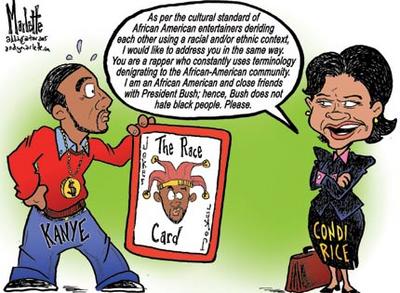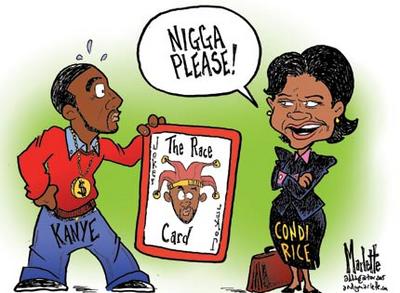Monday, Oct. 10, 2005
October 8 was the 38th anniversary of the day the quaking "guerrilla hero" was prompted to say: "Don't Shoot! I'm Che! I'm worth more to you alive than dead!" ("Fidel: Hollywood's Favorite Tyrant")
According to many eyewitness accounts, Che's own victims conducted themselves much differently on their last day alive. "Viva Cuba Libre! Viva Cristo Rey! Abajo Comunismo!"
"The defiant yells would make the walls of La Cabana tremble," wrote eyewitness Armando Valladares.
Outside Havana and in the countryside, Che's murder victims often faced the firing squads untrussed, shoved in front of a recently dug pit with their hands free. "Aim right HERE!" was a favorite among some of the these as they reached below the belt. This was a favorite, they say, of the campesinos Castro and Che's firing squads murdered during the Escambray rebellion. "'Cause y'all ain't got any!" yelled these Cuban rednecks right before the volley shattered their bodies.
Carlos Machado was 15 years old in 1963 when the bullets shattered his body. His twin brother and father collapsed beside Carlos from the same volley. All had resisted Castro's theft of their humble family farm.
On Christmas Eve 1961 Juana Diaz spat in the faces of the executioners who were binding and gagging her. They'd found her guilty of feeding and hiding "bandits" (Cuban rednecks who took up arms to fight the theft of their land). When the blast from that firing squad demolished her face and torso, Juana was six months pregnant.
Traditionally, only one or two members of a firing squad have loaded guns. The rest shoot blanks. Not Castro's and Che's. In these, all ten members shot (and still shoot) live ammo – all ten bullets rip into the staked hero or heroine.
This incorporates more members into Castro's criminal organization, more members to resist desperately any overthrow of the system, with the consequent settling of accounts.
Cuba's population in 1960 was 6.2 million. According to the human Rights group Freedom House, 500,000 Cubans (young and old, male and female) have passed through Castro's prison camps. At one time during 1961-62, 300,000 Cubans were jailed for political offenses islandwide. This makes Castro's political incarceration rate higher than Stalin's and Hitler's.
"Crazy with fury I will stain my rifle red while slaughtering any enemy that falls in my hands! My nostrils dilate while savoring the acrid odor of gunpowder and blood. With the deaths of my enemies I prepare my being for the sacred fight and join the triumphant proletariat with a bestial howl!"
This is from Che's famous "Motorcycle Diaries," recently made into a heartwarming movie by Robert Redford. It seems that Mr. Redford omitted this passage from his touching film. The "acrid odor of gunpowder and blood" never reached Guevara's nostrils from actual combat. It always came from the close-range murders of defenseless men (and boys.)
In actual combat (puerile skirmishes, actually) his imbecilities defy belief. Compared to Che "The Lionhearted" Guevara, Groucho Marx in "Duck Soup" comes across like Hannibal. The century's most famous guerrilla fighter in fact never fought in anything properly describable as a guerrilla war (see "Fidel: Hollywood's Favorite Tyrant,"). When he finally started getting a tiny taste of one in Bolivia, he was promptly routed.
"To send men to the firing squad, judicial proof is unnecessary," declared the Cuban Revolution's chief executioner, Che Guevara. "These procedures are an archaic bourgeois detail. This is a revolution! And a revolutionary must become a cold killing machine motivated by pure hate."
By the way, exactly a month after this declaration by his chief executioner, Castro received an engraved invitation: Harvard Law School was asking the honor of his presence to address the school. "Castro visit triumphant!" blared the Harvard Law Record on April 30, 1959. "The audience got what it wanted – the chance of seeing the Cuban hero in person, if not at as close a range as might have been desired!"
Castro brought the house down, the very roof shook with the cheers and whoops of the faculty and student body at the world's most prestigious institution of Western jurisprudence.
One defector claims Che signed 400 death warrants during the first month of the Cuban Revolution. Another says over 600. Cuban journalist Luis Ortega, who knew Che as early as 1954, writes in his book "Yo Soy El Che!" that Guevara sent 1,897 men to the firing squad. In his book "Che Guevara: A Biography," Daniel James writes that Che himself admitted to ordering "several thousand" executions during the first few years of the Castro regime.
The scope of Che Guevara's mass murder is unclear. The exact number of widows and orphans is in dispute. The number of men (and boys) who Che sent, without trial, to be bound to a stake and blown apart by bullets runs from the hundreds to the thousands.
And the mass executioner's T-shirt adorns the very people who oppose capital punishment – as Harvard Law School's faculty certainly did while clapping, hyperventilating and throwing their panties at Castro on stage.
Che's image is particularly ubiquitous on college campuses. But in the wrong places. He belongs in the marketing, PR and advertising departments. His lessons and history are fascinating and valuable, but only in light of P.T. Barnum. One born every minute, Mr. Barnum? If only you'd lived to see the Che phenomenon. Actually, ten are born every second.
His pathetic whimpering on his last day alive: "Don't shoot!" I'm Che!" I'm worth more to you alive than dead!" proves that this murdering swine was unfit to carry his victims' slop buckets.
Humberto Fontova is the author of "Fidel: Hollywood's Favorite Tyrant," a Conservative Book Club main selection described as "Absolutely devasting. A shocking read you'll never forget" by David Limbaugh.
Sent by Sr.Cohiba




